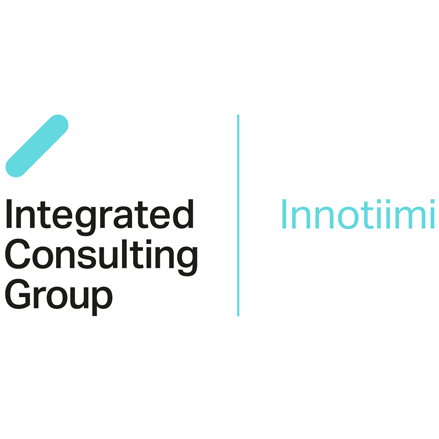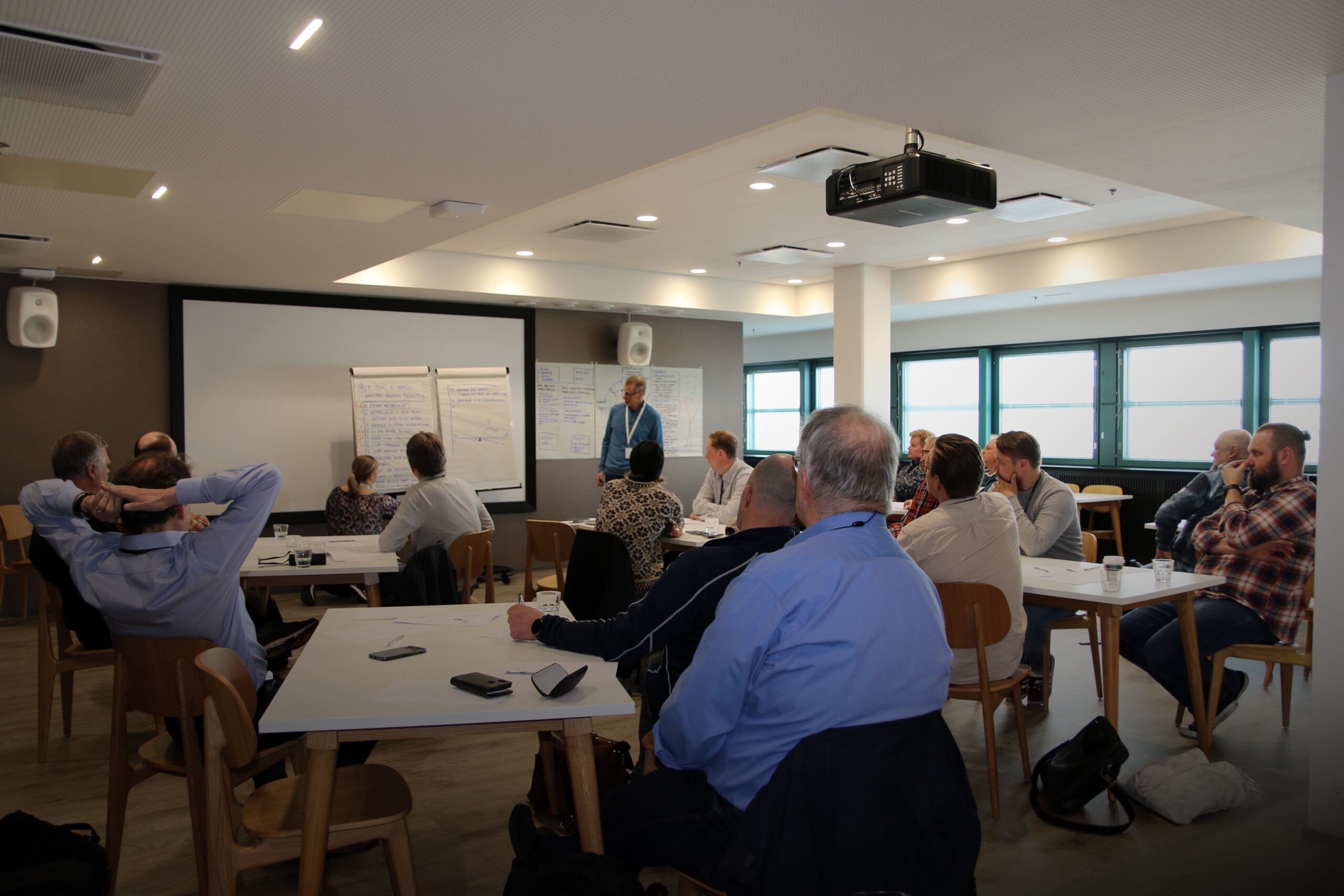
Customer
Metso Corporation
Consultants
Anssi Juutilainen
Hannamari Koivuniemi
Dare to Care training steered Metso’s safety culture towards a holistic change
Metso sought ICG Innotiimi’s assistance in developing a stagnant safety culture in a global company operating on all continents.
Challenge
How can a global organization develop a safety culture and implement a change in safety thinking and practices?
Solution
ICG Innotiimi conducted Dare to Care training in several organizations worldwide to empower employees to address safety issues more boldly and help managers and supervisors to support them.
Impact
The number of risk detections has increased, and quality has improved. Dealing with actual risks has also enhanced, and feedback has been more active.
Metso Corporation is a global leader in aggregates, mineral processing, and metal refining, employing more than 17,000 people in nearly 50 countries worldwide. The company has high safety objectives, standards, and practices that apply to all of its business lines. In one of the supply chains of the Consumables Business line, the positive safety development that had been going on for more than a decade stalled, and further improvements became increasingly challenging to accomplish and sustain.
”We are a global supply chain of almost 1,000 professionals. The challenge was that not everyone in the organization recognized or reported the potential safety risks. Also, reporting near misses was lower than expected based on statistics. Furthermore, the content of the reports on risks and near misses was biased towards certain topics, not showing our whole risk portfolio. A holistic change in safety thinking was needed”, says Tapani Suominen, Health and Safety, Environment and Quality Director at Metso Consumables, Rubber & Polymet Supply Chain.
Although Metso already had the essential safety tools in place, such as a reporting system in all units, external help was needed to make a positive change.
”We in our supply chain management team knew from the past that ICG Innotiimi had the capabilities to help us. We have collaborated in the past in training and coaching frontline leaders on principles and practical tools for involving leadership. We launched the Dare to Care project, which gave us the practical tools to continue to improve our safety culture”, Suominen says.
Coaching for management and frontline staff
ICG Innotiimi’s Dare to Care training program aims to strengthen the organization’s safety culture and boldly guide employees to address the organization’s issues. Tailor-made training sessions for Metso were held in different manufacturing units in Sweden, Lithuania, Mexico, Chile, India, Australia, Peru, and Brazil.
The training increases management’s understanding of how to make safety a natural part of day-to-day operations, from top management to employees. Suominen toured with ICG Innotiimi’s team. The different phases of the training program involved members of the management team of the respective unit, key staff from supporting functions and frontline supervisors who, after completing the training, trained the staff in their teams.
Cultural differences emerged
Metso initiated safety improvements by analyzing their metrics. The case investigations and data showed that human choices and reactions to mistakes were either the primary factors or at least strongly present besides technical factors. Giving constructive feedback and intervening in someone’s work can be challenging in some cultures due to high thresholds.
”In the future, we want our employees to have the courage to intervene in anyone’s behavior if the situation calls for it, no matter the organization, function or organizational rank”, says Suominen.
Metso aims to identify, highlight, and reflect risk situations in a way that will build trust and become a regular part of the company’s culture. The main message is that everyone has a responsibility for collective safety and needs to do that in practice. Furthermore, there shall be zero tolerance for blaming people, and the focus shall be on practical improvements to reduce risks and strengthen the safe work.
Work to develop a safety culture continues
The units that received Dare to Care training have shown progress in detecting and improving the number and quality of risk observations despite the gradual culture change.
”Thanks to these detections, we have been able to catch genuine risk situations and proactively address them. Employees have also dared to be more open about their mistakes and misbehaviors, and when risks have materialized, the situation has been handled better than before,” says Suominen.
Frontline and non-front staff have significantly changed their thinking, attitudes, and actions. However, it is crucial to sustain the results of the successful implementation of tried-and-tested models.
The work to achieve better safety is still ongoing. The next step at Metso Consumables, Rubber & Polymet Supply Chain will be to gain more depth in capabilities by repeating the Dare to Care training and coaching sessions in all units as annual practice. The methods will be also a part of every new employee’s induction period.
”We believe in continuous improvement and have not set a best-before date for Dare to Care!”
Does your company’s safety culture need fine-tuning or a more comprehensive overhaul?
_______________________________________________________
Feedback from participants across various countries at Metso
Irma Atkočienė, General Manager, Šiauliai Lithuania
“Before the project, our factory emphasized safety from the beginning but faced challenges in changing the mindset that prioritized output over employee safety. Common excuses included prioritizing production speed and reliance on past practices. Despite theoretical knowledge about safety procedures, actual behavior on the shop floor didn’t reflect this awareness.
Tangible changes resulting from the training included operators working slower to prioritize safety, supervisors becoming safety role models, and a shift in attitudes toward safety among operators. Challenges were overcome by enforcing a stop-think-act approach, supervisors becoming proactive safety advocates, and implementing effective communication strategies.”
The three key lessons from the training for our factory were:
1. Importance of focus and leadership from the top down, with managers setting the example.
2. Emphasizing clear and consistent communication throughout the project, addressing concerns, and providing individual attention.
3. Recognizing that such projects require significant time and resource investment: at least six months is needed to implement and sustain changes, especially from the management team.
Bujar Rrahmani, Plant Manager, Trelleborg Sweden
“Before the Dare to Care training, our factory primarily focused on individual safety rather than collective concern. Challenges included skepticism from employees regarding the company’s commitment to change. To address this, the project implemented task lists with dedicated individuals responsible for each task, ensuring transparency and accountability.
The impact of the project was significant in fostering a culture of caring for colleagues, leading to increased awareness and proactive safety measures.”
The three key lessons from the training for our factory were:
1. Clear communication about tasks derived from the Dare to Care initiative.
2. Assigning dedicated personnel to tasks with defined timelines for completion.
3. Consistent and transparent communication with employees about tasks, timelines, and progress, highlighting the importance of effective communication throughout the project.









